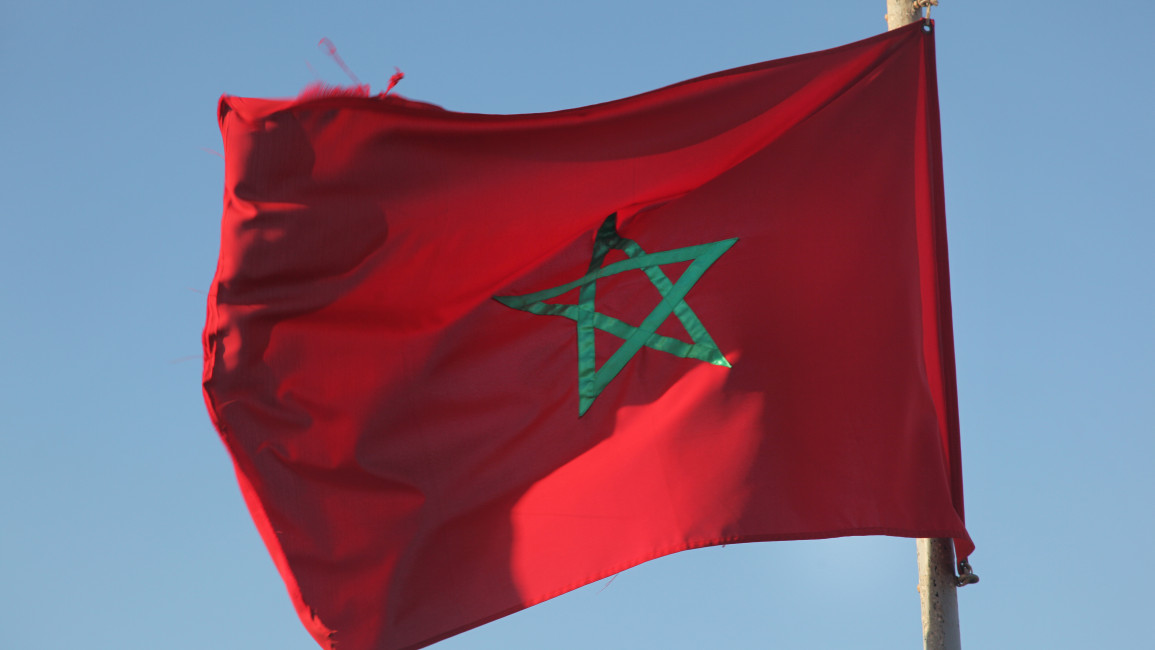France's Lacoste faces backlash over 'divided' Moroccan map design
French clothing company Lacoste is facing backlash over a new-released polo shirt featuring a design of a 'divided' Moroccan map, as Paris and Rabat ties roil reportedly over the same issue: Western Sahara.
The shirt, whose reference is "L.12.12 graphique planisphere," is inspired by the original first shirt that Rene Lacoste designed in 1933. The new design features a map of the North African kingdom without the Western Sahara territory, which Rabat considers it's own.
Over in Moroccan social media, the design stirred widespread outrage and a nationwide boycott campaign against the high-end sports clothing company.
"It is time to request the departure of their shops from the country of which they do not recognize the territorial integrity," tweeted a Moroccan user under the hashtag 'boycott Lacoste.'
Morocco is home to a total of 18 Lacoste stores, including two in Rabat, three in Casablanca, and two in Tangier, among others.
The controversial shirt was first spotted by the Moroccan diaspora in European countries' stores. However, it is not available to purchase in Moroccan online and physical stores.
Lacoste has yet to respond to the controversy.
Some users went further to link the sports design to a 'French diplomatic provocation'.
"Lacoste your latest 'planisphere' collection is disrespectful towards the Kingdom of Morocco and the 40 million Moroccans. Who validates your designs? French diplomacy?" tweeted a Moroccan user.
The map chosen by Lacoste is the same one used by the United Nations. The international organisation looks at the disputed Western Sahara territory as a no man's land, recognising neither Rabat nor the Algeria-backed Polisario Front sovereignty over it.
@Lacoste votre dernière collection “ planisphère “ est irrespectueuse vis à vis du Royaume du Maroc 🇲🇦 et des 40 Millions de marocains
— T⛥RIK_TALK (@Tarik_Talk) March 16, 2023
Qui valide vos design ? La diplomatie française ? Nième provocation de la 🇫🇷 ?#BoycottLacoste https://t.co/FtTwbGuHiS pic.twitter.com/7n0TMfnwI0
Over the past two years, Rabat and Paris have maintained a frigid relationship reportedly over Paris' neutral position on Western Sahara.
Last year, the Moroccan King admitted that real friendship with Rabat will only be reached through a clear position on the territory.
This diplomatic policy proved effective as Madrid and Berlin both voiced support for the Moroccan autonomy plan for the territory after a year of tensions with Rabat.
In 2007, Morocco presented its autonomy plan for the territory, which is supposed to allow Saharawis to run their affairs "democratically", through legislative, executive, and judicial bodies, while Morocco retains control over the defence and foreign relations.
For its part, the UN has backed the plan but Algeria and the Polisario Front have so far rejected Rabat's proposal.
Since then, numerous UN-sponsored talks have failed to make a breakthrough, with each side further entrenching its position.


![Minnesota Tim Walz is working to court Muslim voters. [Getty]](/sites/default/files/styles/image_684x385/public/2169747529.jpeg?h=a5f2f23a&itok=b63Wif2V)





![Israeli strikes on Beirut [Getty]](/sites/default/files/styles/image_330x185/public/2176155077.jpeg?h=a5f2f23a&itok=Xq7ypWgM)
